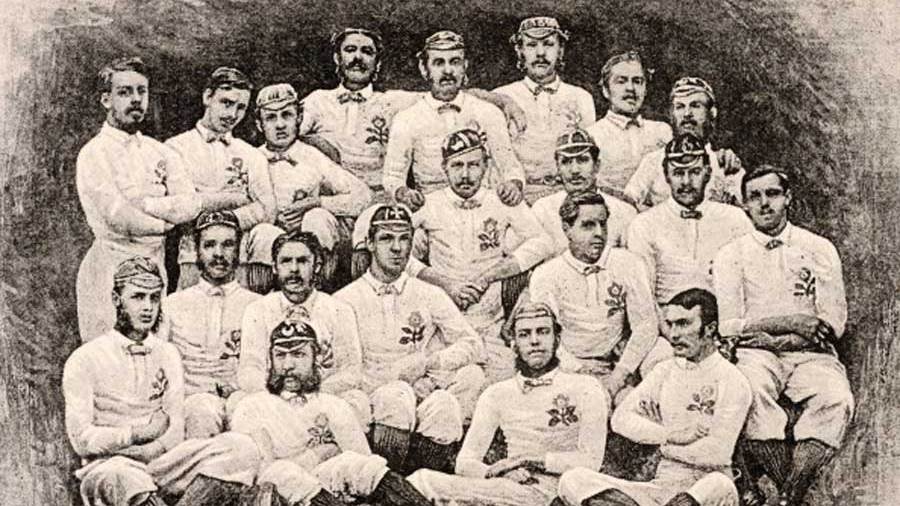March 27 down the years
The birth of international rugby
The England side for the first international ... © Getty Images
1871
Around 4000 spectators at Edinburgh's Raeburn Place watched Scotland beat England by the only goal of the game in the first rugby international. The match resulted from a challenge issued in the sporting publication Bell's Weekly on December 8, 1870 and signed by the captains of five Scottish clubs, inviting any team "selected from the whole of England" to a 20-a-side game to be played under the Rugby rules. Blackheath, the leading English club, accepted the challenge.
1965
French touch-judge - and qualified referee - Bernard Marie had to take over when referee Ron Gilliland twisted his ankle during Wales's bid for the Grand Slam in Paris. But it took a six-minute touchline summit between the presidents of the two boards and other associated hangers-on to decide if the Welsh or French judge should take charge. In the game itself, France took a staggering 22-0 lead before Wales, already the champions, fought back with 13 consolation points.
1995
Alan Jones resigned as Wales coach less than two months before the start of the World Cup in South Africa. Other members of the management staff, including Robert Norster and Gareth Jenkins, also quit. The announcement followed ongoing disputes over player selection and other issues relating to the national side.
1971
Scotland and England played a special match to celebrate the centenary of international rugby in Edinburgh. Scotland won 26-6, inspired by John Frame's try from the kick-off, their biggest win since the introduction of modern scoring values in 1905. "It was a crushing indictment of England's policies and attitude to the game at international level," fumed the Guardian, " including coaching, squad training, captaincy even spirit."
1917
Lieutenant Frederick Harvey became one of only four rugby internationals to win the Victoria Cross during an incident at the village of Guyencourt in France. "During an attack by his regiment on a village, a party of the enemy ran forward to a wired trench just in front of the village, and opened rapid fire and machine-gun fire at a very close range, causing heavy casualties in the leading troop. At this critical moment, when the enemy showed no intention whatever of retiring, and fire was still intense, Lt. Harvey, who was in command of the leading troops, ran forward well ahead of his men and dashed at the trench, skilfully manned, jumped the wire, shot the machine-gunner and captured the gun. His most courageous act undoubtedly had a decisive effect on the success of the operations". Harvey was originally awarded the Distinguished Service Order but this was later upgraded to a VC.
1971
A famous double tackle by Barry John and John Taylor on Benoit Dauga helped Wales on the way to a 9-5 Grand Slam win against France in Paris. The referee, whose decisions angered the crowd, had to be escorted from the pitch by a bevy of security men while John Dawes, Wales' captain, was carried off on the shoulders of jubilant supporters.
1924
Wales escaped the wooden spoon with a 10-6 Thursday-afternoon victory over France in torrential rain at Colombes. So bad was the visibility that newspaper reports had to admit that they could not identify some of the players in the key incidents.
1976
Gloucestershire's Peter Bulter set an individual record for a County Championship final, scoring all 24 points (a try, a conversion and six penalties) in his side's 24-9 win against Middlesex at Richmond. But the media made clear their displeasure over the disproportionate effect the flurry of penalties, often for minor infringements, had on the outcome.
© Scrum.com


